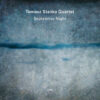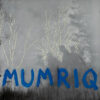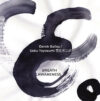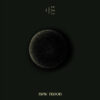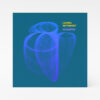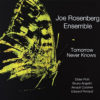
American, Paris-based sax player-composer Joe rosenberg has mastered the art of connecting what most of us would consider as unconceivable. His new album with his Ensemble – cellist Didier Petit (who played on the Ensemble’s 2014 «Resolution», replacing sax player Daniel Erdmann) and pianist Bruno Angelini, bass player Arnault Cusinier and drummer Edward Perraud, all played on the Ensemble’s «Resolution» and 2016 album «Rituals and Legends» (both albums released on Perraud’s label, Quark) – continues to expand this inclusive vision.
«Tomorrow Never Knows» focuses on connections between past, present and future and what may be considered as far away musical universes. Rosenberg even frames the album’s state of mind with quotes of legendary baseball catcher Yogi Berra («it’s tough to make predictions, especially about the future»), Albert Einstein and Apple’s late founder Steve Jobs.
«Tomorrow Never Knows» is divided into three extended compositions where the ensemble incorporates somehow foreign musical universes into its own, open and inclusive jazz aesthetics. The additional three shorter compositions – «Before», «During» and «After» – comment and frame the extended ones in an imaginary timeline of jazz history as Rosenberg and his Ensemble interprets it.
The opening piece, «Lalit» is based on the classical Hindustani serene, dawn raga, as performed by vocal master Ustad Rashid Khan. Only the soprano sax of Rosenberg suggests the spiritual, serene tones of the original raga while the Ensemble frames these tones in a loose yet urgent interplay. The following piece, Rosenberg’s «Before» sounds much more as referencing a meditative, contemplative raga, anchored by Angelini fragmented lines and the soft blows of Rosenberg.
Jaco Pastorius’ much-covered, heartfelt tribute to his wife, «Portrait of Tracy», offers a touching solo of Rosenberg, contrasted by dark, reserved solos of Cusinier and Petit, none of these somehow sober solos attempts to replicate Pastorius virtuosi technique or the original dreamy spirit of this piece. It is followed by Rosenberg’s «During» that offers a complex rhythmic module for the Ensemble.
The cover of John Lennon’s psychedelic-experimental-Indian «Tomorrow Never Knows» (from The Beatles’ «Revolver», 1966), follows at first the song rhythmic flow, and Rosenberg sax sings the original melody. But soon the Ensemble shifts its interplay into a searching, intense one that stresses the Eastern nuances of this song and its unconventional pulse. The album is concluded with «After», Ellis Marsalis’ beautiful ballad. After all, even if we don’t know what tomorrow may bring, we had better trust our instincts and intuition and follow this beautiful journey of Joe Rosenberg Ensemble.
Eyal Hareuveni
Joe Rosenberg (ss), Didier Petit (c), Bruno Angelini (p), Arnault Cusinier (b), Edward Perraud (dr)


